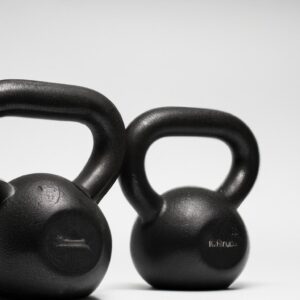Micronutrients and Bone Health: The Critical Role of Vitamins and Minerals in Preventing Osteoporosis and Enhancing Athletic Performance
# Micronutrients and Bone Health: The Critical Role of Vitamins and Minerals in Preventing Osteoporosis and Enhancing Athletic Performance
Bone health is a fundamental aspect of overall well-being, particularly as we age. Osteoporosis, a condition that weakens bones and increases the risk of fractures, affects millions worldwide. However, the importance of micronutrients—vitamins and minerals—cannot be overstated in the context of maintaining healthy bones and optimizing athletic performance. This blog post delves into the critical role of these micronutrients, providing essential nutrition and exercise advice to help you achieve optimal bone health.
## Understanding Micronutrients and Their Importance
### What are Micronutrients?
Micronutrients are vital nutrients required by the body in small quantities for various physiological functions. They include vitamins such as Vitamin D, Vitamin K, and minerals like calcium and magnesium. Although they are needed in lesser amounts than macronutrients, their impact on bone health is significant.
### The Connection Between Micronutrients and Bone Health
Bones are dynamic structures that require a continuous supply of nutrients to maintain their strength and structure. Micronutrients play a crucial role in bone formation, remodeling, and mineralization. Deficiencies in these essential nutrients can lead to weakened bones and increased susceptibility to osteoporosis and fractures.
## Key Micronutrients for Bone Health
### Calcium
Calcium is perhaps the most well-known mineral associated with bone health. It is the primary component of bone tissue, and adequate intake is essential for developing peak bone mass during childhood and adolescence. Adults require a consistent intake of calcium to maintain bone density.
### Vitamin D
Vitamin D enhances calcium absorption in the intestines and plays a vital role in bone metabolism. A deficiency in Vitamin D can lead to decreased calcium absorption, resulting in weakened bones and a higher risk of fractures.
### Magnesium
Magnesium is another critical mineral for bone health, as it helps convert Vitamin D into its active form, promoting calcium absorption. It also plays a role in the structural development of bone.
### Vitamin K
Vitamin K is essential for the synthesis of proteins involved in bone mineralization. It helps bind calcium to the bone matrix, enhancing bone strength and reducing the risk of fractures.
## Nutrition Tips for Optimal Bone Health
1. **Incorporate Calcium-Rich Foods**: Aim to include dairy products, leafy greens, nuts, and fortified foods in your daily diet to meet your calcium needs.
2. **Get Your Daily Dose of Vitamin D**: Spend time outdoors to allow your skin to synthesize Vitamin D from sunlight. Consider fortified foods or supplements if you live in areas with limited sunlight.
3. **Include Magnesium-Rich Foods**: Consume whole grains, legumes, seeds, and nuts to ensure you are meeting your magnesium needs.
4. **Add Vitamin K Foods to Your Diet**: Leafy greens like kale, spinach, and broccoli are excellent sources of Vitamin K. Aim to include these in your meals regularly.
5. **Stay Hydrated**: Though not a micronutrient, adequate hydration is crucial for overall health and aids in nutrient absorption.
## Exercise Advice for Strong Bones
1. **Weight-Bearing Activities**: Engage in activities such as walking, jogging, and dancing that force you to work against gravity, promoting bone density.
2. **Strength Training**: Incorporate resistance exercises into your routine, such as lifting weights or using resistance bands, to stimulate bone formation.
3. **Balance and Flexibility Exercises**: Practices like yoga or tai chi can enhance balance and coordination, reducing the risk of falls and fractures.
4. **Consistency is Key**: Aim for at least 30 minutes of moderate-intensity exercise most days of the week to support bone health.
## Health Benefits Beyond Bone Health
Maintaining adequate levels of vitamins and minerals not only supports bone health but also contributes to overall wellness. Strong bones provide a foundation for mobility, enhancing athletic performance and reducing the risk of injury. Proper nutrition and exercise can lead to improved muscle strength, better balance, and increased longevity.
### Enhanced Athletic Performance
Athletes, in particular, can benefit from a diet rich in micronutrients. Adequate calcium and Vitamin D support muscle function and contraction, while magnesium aids in energy production. Vitamins and minerals also play a role in recovery, helping to reduce inflammation and fatigue.
## Conclusion
In summary, the importance of micronutrients in bone health cannot be overlooked, especially in the prevention of osteoporosis and enhancement of athletic performance. By focusing on a balanced diet rich in calcium, Vitamin D, magnesium, and Vitamin K, alongside a consistent exercise regimen, you can cultivate a strong skeletal structure and promote overall well-being. With the right approach to nutrition and physical activity, you can ensure your bones remain healthy and resilient throughout your life.















Post Comment